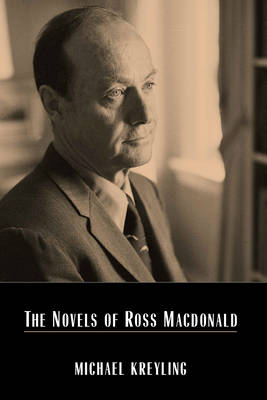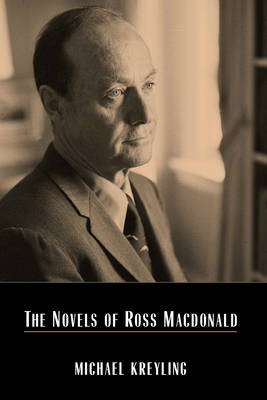
- Afhalen na 1 uur in een winkel met voorraad
- Gratis thuislevering in België vanaf € 30
- Ruim aanbod met 7 miljoen producten
- Afhalen na 1 uur in een winkel met voorraad
- Gratis thuislevering in België vanaf € 30
- Ruim aanbod met 7 miljoen producten
Omschrijving
In his examination of Ross Macdonald's eighteen detective novels, Michael Kreyling suggests that this widely read author elevated a popular genre from the plateau reached by Dashiell Hammett and Raymond Chandler to a level of sophistication yet to be surpassed. Including in his study such early volumes as The Ivory Grin and Meet Me at the Morgue, Kreyling takes a fresh look at forgotten works as well as Macdonald's better known novels. Kreyling proposes that the literary merit of the Macdonald corpus calls for a closer, more discriminating reading than scholars commonly accord the genre.
Kreyling moves beyond the usual critical focus on the internal structure of the works--the disclosure and hiding of clues, for example--to provide a fuller assessment of why Macdonald's writings deserve the same critical attention afforded serious novels. He considers the mutual bond of structure and life that informs Macdonald's work, the Freudian theories he has adopted to advance his genre, and the place his novels occupy in the larger literary canon.
Illumining the ways in which Macdonald's writing engages reality, Kreyling stresses the importance of reading Macdonald in his time. He looks with particular interest at the life of Ken Millar, the man who adopted the pen name Ross Macdonald, and relates the author's experiences to the storylines surrounding hard-boiled detective Lew Archer. Kreyling shows that instead of presenting a static protagonist, Macdonald forces Archer to mature and change by incorporating themes drawn from the travails of the novelist's own family life, the social and moral upheavals of the 1960s, America's and California's obsession with race, environmental sins associated with unreflective development, and the difficulties of aging.
Specificaties
Betrokkenen
- Auteur(s):
- Uitgeverij:
Inhoud
- Aantal bladzijden:
- 185
- Taal:
- Engels
Eigenschappen
- Productcode (EAN):
- 9781570035777
- Verschijningsdatum:
- 1/07/2005
- Uitvoering:
- Hardcover
- Formaat:
- Genaaid
- Afmetingen:
- 163 mm x 235 mm
- Gewicht:
- 449 g

Alleen bij Standaard Boekhandel
Beoordelingen
We publiceren alleen reviews die voldoen aan de voorwaarden voor reviews. Bekijk onze voorwaarden voor reviews.











